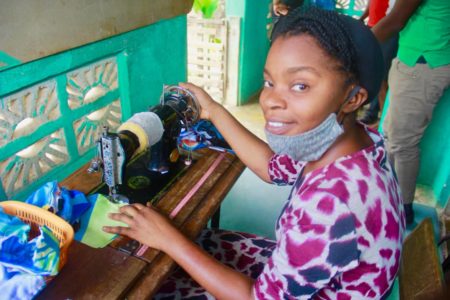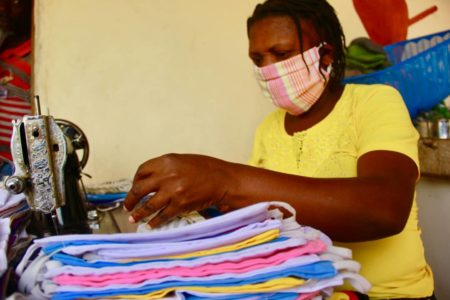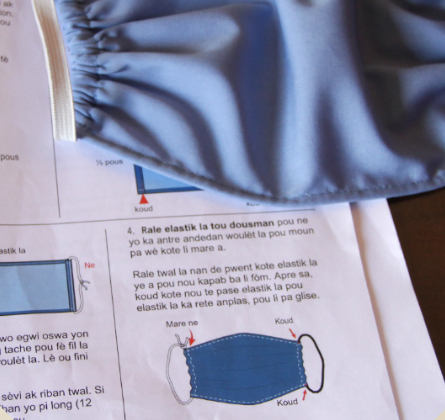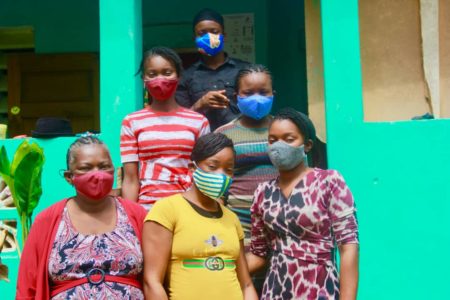I’d like to share some important and inspiring news from our program in Haiti. There’s a deep sense of community spirit among Haiti’s slavery survivors. That’s why the Adult Survivor Network has stepped forward to be part of the country’s response to the COVID-19 pandemic.

When the call went out for seamstresses and tailors, a team of 30 survivors formed to sew 4,000 masks and assemble 2,400 hygiene kits. They are being distributed in Port-au-Prince, Jacmel and La Gonave Island.

“This initiative is a good one,” says Jacqueline, who was enslaved as a domestic servant as a child. “If every organization thought like this, I believe that the coronavirus would not spread too much.”
The masks are sewn using instructions from the U.S. Centers for Disease Control. The hygiene kits include buckets with taps, soap and chlorine for washing hands and sanitizing household items. Information on social distancing to prevent COVID-19 transmission is included.

COVID-19 testing and treatment is extremely limited in Haiti, especially in impoverished and remote regions. That means prevention is a critical front-line defense. The United to End Child Slavery program, run jointly by Free the Slaves and Beyond Borders, is adapting field activities to meet the most pressing needs caused by the pandemic. This also includes providing food, seeds for community gardens, and activities to address the growing risks of gender-based violence during periods of extreme social stress.

We hope that you continue to support Free the Slaves so that our innovative programs in Haiti and other slavery hot-spot countries can assist vulnerable communities during this time of extraordinary need.




